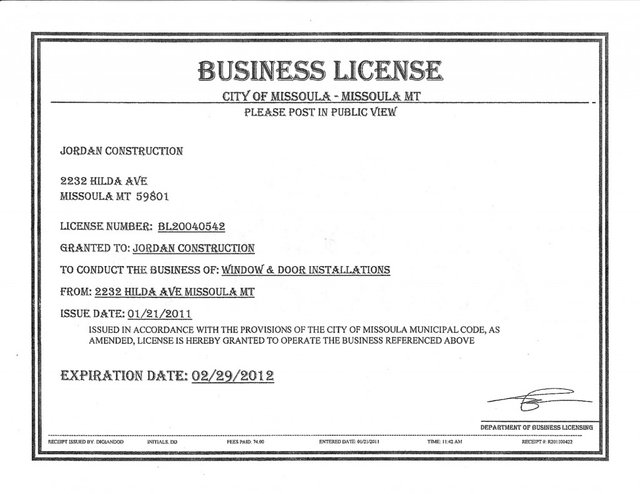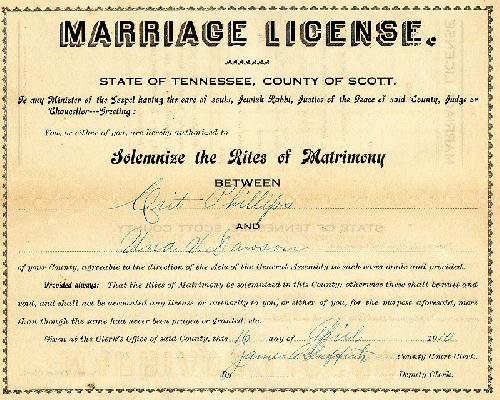Licenses and Freedom
A license is permission to do something that is otherwise illegal. This is a basic definition found in any legal dictionary. As such, licenses and permits are proof that something remains illegal, not that freedom has been recognized. Legality does not define morality or reason, so any claims to legal authority are open to question and bear the burden of proof in any rational debate.
Licenses are proof of governmental overreach. If governments claim ownership of territories of land and the residents therein, then such claims are clearly usurpation and trespass. Even if governments exercise authority granted by the people through the "democratic process" as is taught in civics lessons in school, then the claim of authority to grant permission is still a usurpation since we as individuals already have the authority to make such determinations of permissibility already.
But don't licenses protect us from dishonest businessmen, dangerous drivers, hazardous buildings, or other risks? No. Licenses only protect the license holder from some of the threats of governmental violence. Refusing to beg for permission from your masters may result in theft, battery, or kidnapping under color of law.
The activist must analyze the risks and rewards of living as a free individual in a world that hides tyranny so poorly behind the illusion of liberty. Live free, but cover your ass. Only you can gauge the risk/reward values of acting like you have real liberty in any given situation.
Until you see the chains, you don't know you are not free. If you never try to reach past the bars of your cage, you never know that you are imprisoned.



I couldn't possibly agree more, and every time I try to explain this to anyone, they act like I'm crazy.
This is interesting, I hadn't thought of it that way before. And it seems to fit in most places.
However how does this fit into software licenses. In that case, I can license my software as Creative Commons Universal (I often do) I actually make what was illegal (using my intellectual property) legal, by opening it up to any use as public domain. From the legal text:
I know you may object to this system (and I'm not saying I don't) but within it, doesn't it constitute and exception?
This is getting more into the idea of intellectual property, a notion I reject in the first place. You can't own ideas. Once an idea is made public, you can't control how other people use and modify those ideas. Involving governmental violence is destructive aggression against the rights of others, not a defense of your own rights.
That said, Creative Commons, CopyLeft, BipCot licenses, and the like are all ways to work within the corrupt system to protect those who would use your ideas from government violence. After all, government in its infinite benevolence (in the US at least) has decreed that every written work falls under its copyright law unless you specifically say otherwise.
I was trying to sidestep that inevitable 😂
You haven't answered my question. It's straightforward. As you argue on the basis of the system, consider the same, on that basis.
A Creative Commons license is still permission to do something otherwise "illegal." The only difference is that this is one of the few areas where the individual has some measure of power to sidestep the government's overarching system, and it still only has any power because governments agreed to recognize it. It's a "solution" to a problem that only exists in the first place because government declared something "illegal."
[comment depth reached]
Found this today, very much in line with what you're saying. https://web.archive.org/web/20060813134245/http://www.gnu.org/philosophy/not-ipr.xhtml
Food for thought.
That's true actually, I probably should have seen it. Thanks for the reply.
Again it's an interesting perspective. I choose this license for those reasons, that while it is broadly recognised, by most people not just the government, it's best to pay the lip service, otherwise you risk being taken advantage of. I wish it weren't so.
Still, the idea of privacy complicated matters a bit here. I've looked at it a bit on my blog, you'd probably have a good take on that stuff too.
One thing is that property is something that people are going to be very reluctant to let go of. I think there's a strong case for it but it's not without problems, especially in intangibles like digital media, ideas, mythology etc. I think criticising the premiss of violence only goes so far because it seems really removed and theoretical, cof which I'm sure you're aware. I could read this post as being a way to make that theory relevant.
If it's intangible, it isn't property.
I think you can own ideas, at least your own ideas. Perhaps the owning of another persons(s) idea(s) isn't possible, but if that is the case then it doesn't follow that one could own an idea, even his own, in the first place: what does ownership even mean if the ability to transfer ownership, by whatever means, is absent?
Regardless, the problem is that it isn't especially clear why an idea isn't able to be owned. Specifically, if an idea is a product of thought, and thought is a product of mind, and mind the possession of host, why isn't the host entitled to ownership of his own property? If an(y) idea is produced ONLY thtough the labor of the mind of the host how can universally denying the claim of the hosts ownership of their own idea (which is to say their Thoughts) be equated with either liberty or freedom? Rather it would seem that such a notion is the height of coercion.
Once you share an idea with someone else, either through speech or action, you have no control over how others use that idea without trespassing against their real property rights.
Suppose I own a CNC machine. If I see an object, and think i can reproduce it or even improve upon it, the new idea is mine and the machine is mine. The "law" says it is "illegal" for me to use my own machine to violate someone else's "intellectual property," but this is a real infringement of my real rights to real property. Once I make my object, the idea is open to anyone else doing the same with my idea, because it is no longer something I can own when it is open to the world.
Does this help clarify the idea I am trying to express? the same idea applies to music - I can own the idea of a song, but once I record and release it, others have the right to use their own computers, instruments, voices, etc, to reproduce and improve it regardless of my wishes, because I do not have authority over them or their property. Software code, literature, etc. are similar too.
You can only own an idea you never share. Once an idea is in someone else's mind, it is beyond your sphere of control.